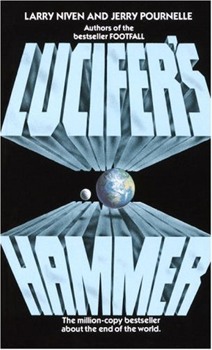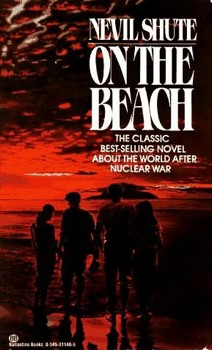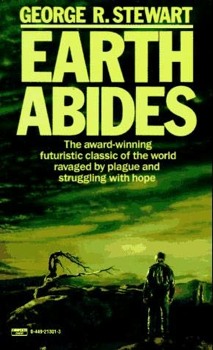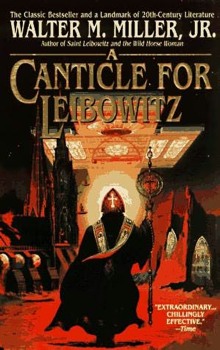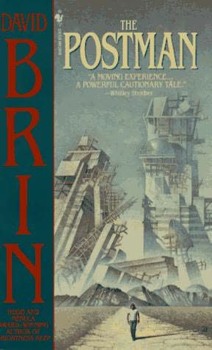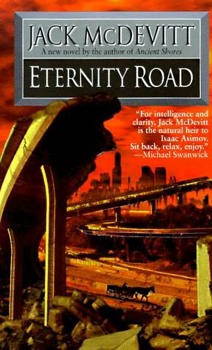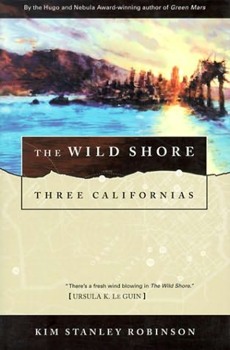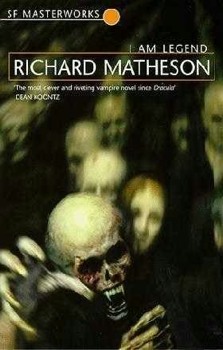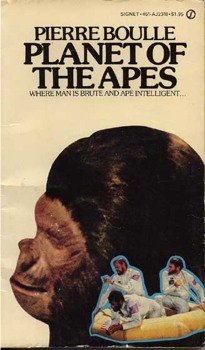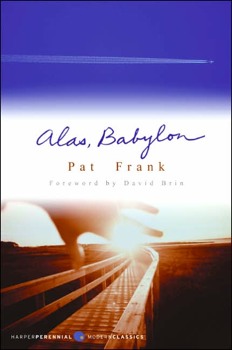 Weird Stuff
Weird Stuff  Weird Stuff
Weird Stuff  Weird Stuff
Weird Stuff The 10 Unluckiest Days from Around the World
 Food
Food 10 Modern Delicacies That Started as Poverty Rations
 Movies and TV
Movies and TV 10 Shared TV Universes You’ve Likely Forgotten About
 Weird Stuff
Weird Stuff 10 of History’s Greatest Pranks & Hoaxes
 Miscellaneous
Miscellaneous 10 LEGO Facts That Will Toy with Your Mind
 Misconceptions
Misconceptions 10 Widespread Historical Myths and the Texts That Started Them
 Crime
Crime 10 Incredible Big-Time Art Fraudsters
 Movies and TV
Movies and TV 10 Most Influential Fictional Objects in Cinema History
 Our World
Our World Top 10 Real Almost‑Cities That Never Materialized
 Weird Stuff
Weird Stuff Ten Bizarre Visions of 2026 from Fiction
 Weird Stuff
Weird Stuff The 10 Unluckiest Days from Around the World
 Food
Food 10 Modern Delicacies That Started as Poverty Rations
Who's Behind Listverse?

Jamie Frater
Head Editor
Jamie founded Listverse due to an insatiable desire to share fascinating, obscure, and bizarre facts. He has been a guest speaker on numerous national radio and television stations and is a five time published author.
More About Us Movies and TV
Movies and TV 10 Shared TV Universes You’ve Likely Forgotten About
 Weird Stuff
Weird Stuff 10 of History’s Greatest Pranks & Hoaxes
 Miscellaneous
Miscellaneous 10 LEGO Facts That Will Toy with Your Mind
 Misconceptions
Misconceptions 10 Widespread Historical Myths and the Texts That Started Them
 Crime
Crime 10 Incredible Big-Time Art Fraudsters
 Movies and TV
Movies and TV 10 Most Influential Fictional Objects in Cinema History
 Our World
Our World Top 10 Real Almost‑Cities That Never Materialized
10 Great Post-Apocalyptic Science Fiction Novels
It’s a classic theme of science fiction: something really, really bad happens, and mankind is knocked back to the Stone Age. Of course, with the dropping of atomic bombs by the U.S. to end World War II, people came to realize that for the first time Man himself possessed the power to bring about a global cataclysm. And science fiction wasted no time in examining the possible effects (there were speculative stories in print well before the Manhattan Project was even conceived).
But nuclear holocaust isn’t the only way Man’s thin veneer of civilization can be stripped by catastrophe. It may have even already happened in our past (the vast majority of cultures have a Great Flood in their mythos). Regardless, what is perhaps amazing is that within the time frame of verifiable history, to include more than 60 years of nuclear capability, no such calamity has occurred.
Shouldn’t stop us from thinking about the possibilities, however. Here then are 10 science fiction novels dealing with humanity’s response to overwhelming devastation. They are in no particular order. The list is not at all a “top ten” nor does it even remotely presume to be comprehensive. If your favorite isn’t represented, by all means comment on that fact. This is simply a list bound by a common theme.
This best-selling 1997 novel details the approach and aftermath of a comet striking earth with disastrous results. A large number of disparate characters are well-drawn and the book essentially focuses on the changes in their lives. In fact, much of the novel takes place before the comet actually strikes. But when the “Hammer” falls, civilization as we know it crumbles and the very survival of the characters is certainly in doubt. New social mores are developed through necessity, as humans are put in the catch-22 of having to band together while being able to trust no one. The book is noteworthy for making us actually care about the characters we come to know, even though there are dozens of them.
Buy the book at Amazon: Lucifer’s Hammer
Probably the earliest (1957) post-apocalyptic science fiction novel to truly achieve mass distribution. The mechanism of destruction is atomic war. Though widely taught in high schools around the world during the 1960s and 70s, when concerns about the Cold War were as rampant as they were in the 50’s, the book is not a treatise on the triumph of the human spirit. In fact, stoic acceptance and even government-sponsored euthanasia figure prominently. But the characters, for the most part, do not wallow in self-pity… they just go about their business. The main story is that of a United States submarine being placed under the command of Australian authorities (the northern latitudes become uninhabitable first). Although it certainly made an impression on millions of young adult readers back in the day, and is widely considered a classic, the list author views it as the weakest science fiction novel on the list.
Buy the book at Amazon: On the Beach
Published before On The Beach in 1949, what is posited here is a global epidemic that makes the Black Death look like last year’s winter cold. One gets the feeling that 99.9%+ of the entire human race is wiped out. The novel did win some awards, and has never been truly unavailable, but it never got the “buzz” of On The Beach. And although it can be powerful on first reading, it really doesn’t hold up. You see, our protagonist is essentially alone for a god-awful number of pages. He was up in the mountains and got bit by a rattlesnake, almost dying, so he “missed” the huge turmoil that mass death imposed on society. A lot of that part is very interesting, in detailing why and where power either stays on or fails, what happens to critters and plants, that sort of stuff. But it does tend to drag, and when the protagonist finally hooks up with a woman, that part starts to drag as well. It all builds towards what sort of society the progeny of the few survivors will create.
Buy the book at Amazon: Earth Abides
This novel won the 1961 Hugo award and is widely considered an outright classic, even outside the science fiction genre. That said, for anyone who is not Catholic or interested in that religion, it can be an extremely difficult read. Centuries after your standard nuclear holocaust, we have a monastery in the U.S. dedicated to preserving scientific knowledge until the time comes to rebuild a technology-based civilization. It was founded by one Leibowitz, who had converted from Judaism (this is an extremely religious-themed novel). Anyway, the book’s nominal main character comes across a cache of writings and stuff that appears to have belonged to Leibowitz himself. Enter the Church for verification. There’s a long section on whether Leibowitz will be canonized or not. Then, we have another Renaissance and the rise of a new technological age. All with the usual politics and backstabbing you would expect in such a cycle involving the Church, of course. The novel could be considered an allegory of the role of the Church from the Dark Ages to the Industrial Revolution.
Buy the book at Amazon: A Canticle for Leibowitz
Huge numbers of people were disappointed with the movie starring Kevin Costner. And no wonder, for the movie failed to emotionally capture the central theme of the novel: that people, faced with a holocaust, will cling to anything that strikes of normalcy. In the movie, Costner’s character was presented pretty much as a standard cinematic hero, whereas in the book he is extremely uncomfortable with his “role” and becomes amazed at the trust people place in him just because he is wearing the clothing of a postman. So he “becomes” one, agreeing to try and deliver mail — at first with no real intention of doing so. What makes this book excellent is that the protagonist gradually morphs into a real version of the facade he adopts. This in turn serves as the foreground of humanity in very trying times desperately attempting to rebuild communication and a sense of community. Of course, there are those who opt to go in the other direction and take what they can — and the Postman becomes a critical player in that essentially good-vs-evil conflict.
Buy the book at Amazon: The Postman (Bantam Classics)
This is the only “quest” novel on the list. About a thousand years from now, after a huge plague, humanity exists in isolated pockets with essentially Amish-type technology (and a concurrent insular social structure). However, ruins and trashed roads remain — the Roadmakers, as the ancients are called, have plenty of visible reminders of their existence. Many believe that there is a place known as Haven where the secrets of their technology remain to be discovered. But as we get started, one previous expedition to find Haven has been wiped out — to all but the very last man. There’s a lot of stuff about how rare and valued actual books of the Roadmakers are esteemed, but eventually a new quest sets out on the path of the one that met with disaster. Adventures along the way, as you might expect. Very craftsman-like in its construction, with believable characters. The ending tends to leave some people wanting something different, but that was no problem for this list author.
Buy the book at Amazon: Eternity Road
We start with nuclear war in the recent past, but this novel is quite different from most such. It is set on the coast of California. A passable existence is being eked out by a small community. Some farm and some run nets for fish. A group of teenagers do their work, but also take jaunts to places they probably should not go. There is a very fascinating depiction of folks from various lifestyles and communities coming together for a combination of trade and carnival. But the crux of the book is that the Japanese are the world’s foremost power now, not the U.S. — but they are leaving the state pretty much to its own, as long as rebuilding does not occur. Folks try to rebuild bridges and railroads, but those keep getting hit from the sky. Ultimately, this novel is about relationships. One particularly cantankerous relationship is between our protagonist and his father, a cold, stern man of importance to the community who oversees the fishing operation. This ambitious book represents a truly unique take on the post-apocalyptic theme. And then the author went ahead and wrote two more books of two completely different possible futures of Orange County.
Buy the book at Amazon: The Wild Shore: Three Californias (Wild Shore Triptych)
Here we have to talk movies and television as well as books. Taking care of the movies first, the best adaptation of this 1954 novel was 1971’s The Omega Man. Lesser films were The Last Man on Earth (1964) and I Am Legend (2007). As for TV, well, chances are that every single Twilight Zone episode you ever loved was written either by Richard Matheson or Rod Serling himself — with Matheson getting the nod most often. It would be fair to say that Matheson’s foremost work was in his insanely extensive television credits. But he could write for print, as well — his short story “Born Of Man And Woman” is twice as freaky as Shirley Jackson’s “The Lottery.” As far as I Am Legend goes, it is the opinion of the list author that the ending of The Omega Man is superior to the ending in the novel… something that is quite rare. Anyway, we have another plague-story (biological weapons rather than nature, this time around). Our hero has an experimental vaccine, and injects himself just in time. Well, there are also naturally-resistant folks, but who can’t stand light as a result, and they form a cult. So every day, the protagonist goes out for supplies and what-not, but must return before dark for his daily battles with these weird “vampires” who are out to get him. Subplots which actually help (for once!) get woven in, and we end up with a fine example of the absolute mastery that was cranked out continually by Matheson over a long and storied career.
Buy the book at Amazon: I Am Legend
Who doesn’t know this classic story? It’s as pop-culture as it comes. But while the movies maintained many of the core concepts of the novel (time-dilation, division of ape culture into military, judiciary and science based on race, degradation of humans, etc), most folks will be surprised that the book is quite different from what we normally think of as the Planet of the Apes saga. In fact, an argument could be made that this book does not fit within the title of the list at all! That’s all that will be said about that so as not to spoil it. Ultimately, fudging had to occur to include POTA, because otherwise the comments would have been overwhelming regarding its absence.
Buy the book at Amazon: Planet of the Apes
Sadly, this once-popular 1959 novel has been fading into obscurity for a long time. It is without doubt one of the best-imagined depictions of the aftermath of nuclear war for a small community that gets somewhat lucky regarding the fallout pattern. It is set in Florida. The protagonist gets a little bit of warning, due to the fact that his brother works for SAC. Then folks start figuring out what to do. It becomes almost a treatise on surviving once everything we accept as normal fails. Of particular interest is how race relations are treated… the reader must understand that this was written in the late 50’s, right before the civil rights movement, and many of today’s readers will come away with Malachai as their favorite character. Alas, Babylon must have been quite an eye-opener when it first hit the stands. Depictions such as a little girl figuring out out how to put fish on the table when they aren’t biting due to oppressive heat, and folks realizing that an actual expedition to find salt (of all things!) is critical to survival, combined with superb characterizations, make this one the best of all. An utter classic, and worth putting in your bomb shelter should you ever build one.
Buy the book at Amazon: Alas, Babylon
